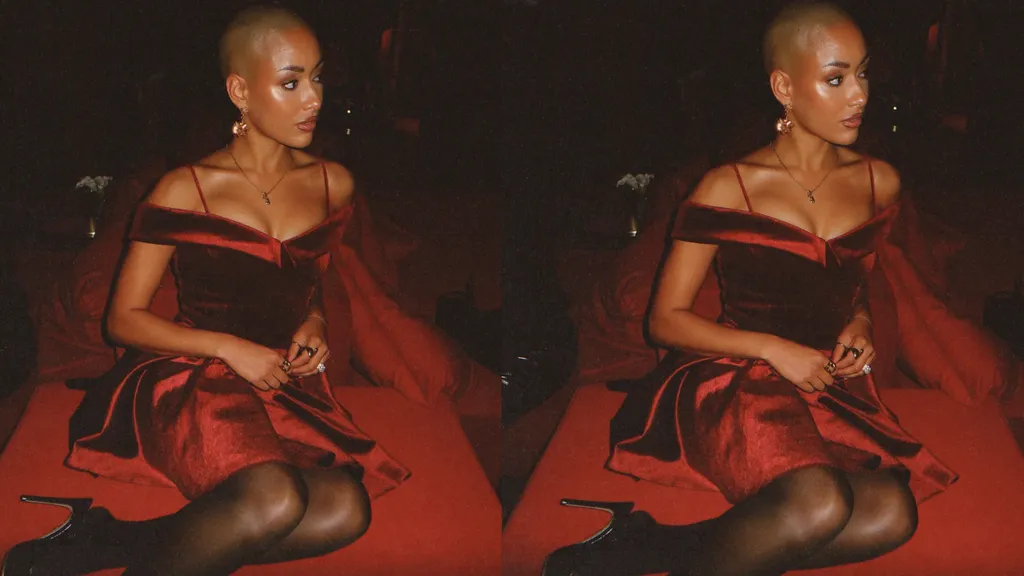
As a 10-year veteran in the beauty space, creator Dash Lopez knows a thing or two about what gets people going on the internet. Five years ago, she started sharing her journey after making the decision to shave her head—a choice that completely impacted the trajectory of her brand. “I wanted to show up on socials in a way that wasn’t so traditional because I didn’t know how to show up in a traditional way,” Lopez tells Who What Wear. “Sometimes, you have creator dysmorphia, and you can’t really see yourself all the time because it just messes with you.”
She began to rethink the kind of content that felt true to her and also connective with her followers. This eventually led to the creation of her Instagram video series Fresh Cut Friday, where she goes through her full scalpcare routine after a fresh shave. Over time, the videos gained popularity, in addition to her other content, which has helped foster community and empower other bald women across the country. “The main thing that I’m trying to have everyone be on the same page about is living in their truth and owning their narratives, whether that’s by choice or not by choice, and that they’re still beautiful regardless.”
Below, learn all about her journey and how stepping into her power as a bald woman is challenging the beauty industry.
The start of that journey was me wanting to connect with myself on a deeper level. I didn’t realize at the time that that’s what I was doing by cutting my hair. At first, it was a maintenance thing because I didn’t have to think about my hair tomorrow or the next day. It was so convenient, and it made me feel powerful, but I didn’t realize the magnitude of how powerful it was until I started meeting people in everyday life and talking about why I chose to make that decision.
The driving force was definitely feeling disconnected from the whole “good hair, bad hair” rhetoric. I grew up in a Dominican community. My mother and I are Afro-Latina, and we were in the salon every weekend watching the women in my family do their hair. I had a noticeably different hair texture than the rest of the women in my family, and I feel like they made me internalize this notion that because I had “good hair” I couldn’t possibly cut it or do anything to manipulate or tamper with it. In hindsight, I think that caused me to reject the idea that I wouldn’t be as beautiful without hair.
A thousand percent. I think about the cultural tie in the way that it’s even affected conversations around hair with women in my own family. My mother has opted to be a naturalista and no longer chemically relax her hair. I’ve had women, particularly women of color, open up about their experiences with alopecia, hair loss, and finding the right products for their hair texture, and many have come to the decision that they don’t have to or want to deal with it. Being able to step into that choice definitely shifted the conversation with women in my community about what it means to have good or bad hair culturally and how we can debunk that.

Who What Wear is part of Future US Inc, an international media group and leading digital publisher. Visit our corporate site.
© USA